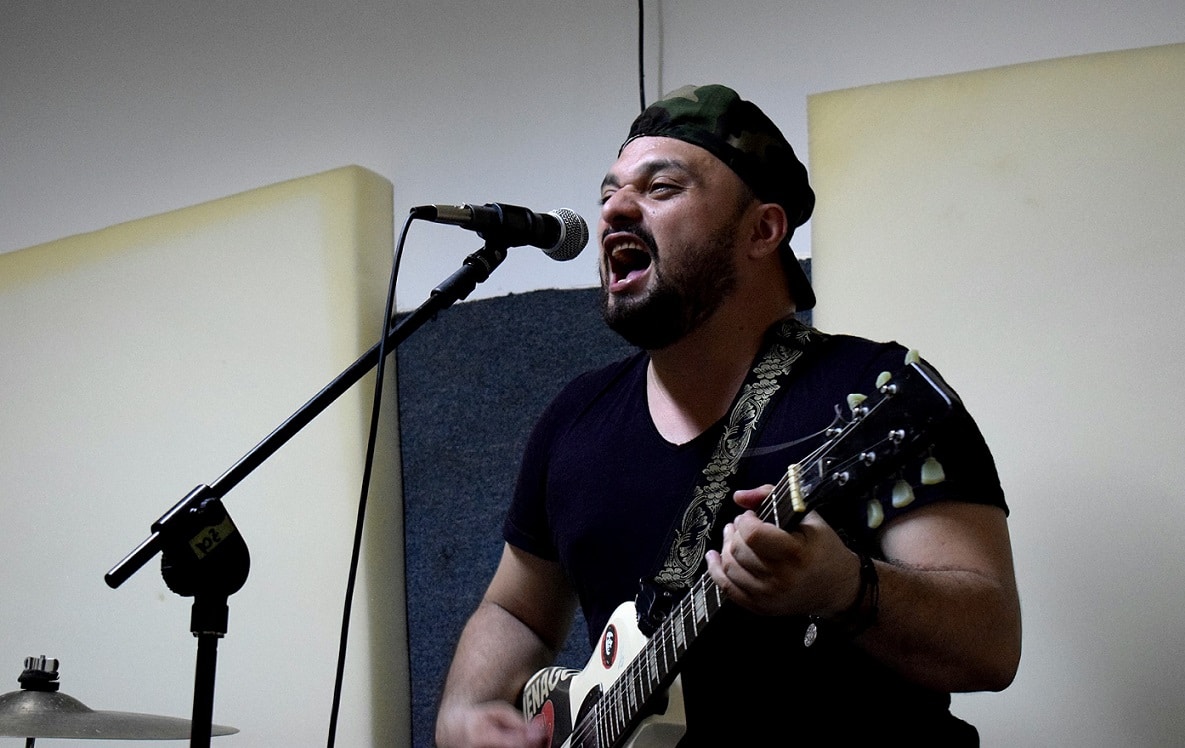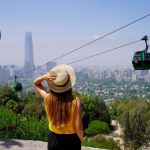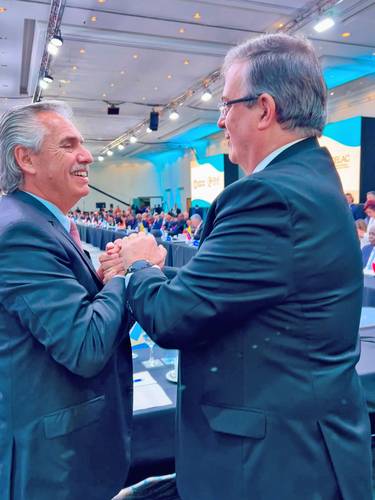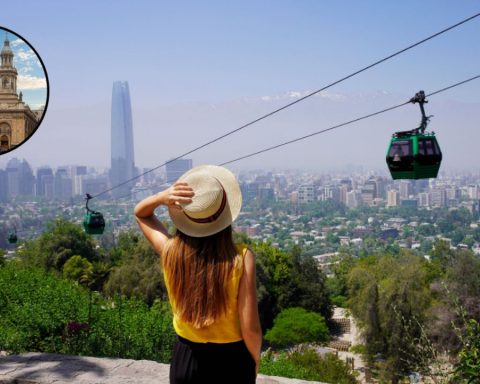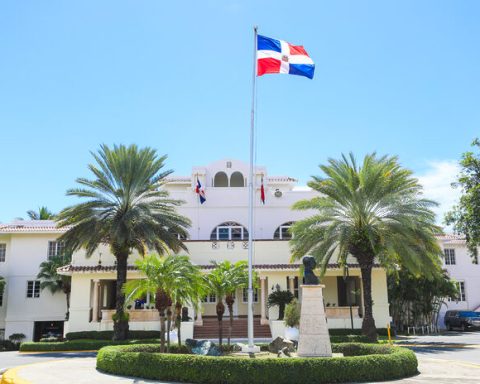In April 2022, the musician and Nicaraguan singer Josué Monroy was arrested at his home and expelled from Nicaragua by police officers who left him without papers at the border with Honduras after having made him sign a document that prohibits him from returning to his country. Days before, he had dared to sing in public In the eye of the hurricane, a song committed to the social movement of 2018.
While the United States reviews its immigration policy by restricting the “irregular” entry of Nicaraguans, among others, the Ortega-Murillo regime continues to show a willingness to harass its critical voices, even to moral outrage and exile.
It is the first time that Josué Monroy has told the media what happened on April 12, 2022 and the days that followed. He feels nervous, even “anxiety”. But from a room in Barcelona, “on the other side of the Atlantic”, he finally found relative tranquility —and enough distance— to recount that day when, for singing his country, he was deprived of his country. .
“Many newspapers wanted me to give a statement right after the events, but I couldn’t. I disappeared from social media for a while. I hidded. I didn’t want to see or hear anything. Until now I begin to be able to talk about it ”, justifies Monroy.
On April 2, 2022, a concert took place at the Alianza Francesa in Managua to celebrate the fifteenth anniversary of his band, Monroy y Surmenage, and of his musical career. Monroy organized that event together with his former manager, Xóchitl Tapia, as a great party that brought together eleven Nicaraguan bands from different parts of the country. The date also fit in with the commemoration of the fourth anniversary of the protests that broke out in April 2018 and were repressed.
“At the end of the concert, at two in the morning,” Monroy recalls, “the audience asked me to sing the song I had written about the 2018 protests. It’s called In the Eye of the Hurricane. Doubt. I knew it was a very delicate subject. In 2019, a concert in Masaya had been canceled because of that song. A band member told me: ‘Don’t sing the song.’ But the public was euphoric and Xóchitl said: “No way, let’s go up.” So I ended up singing it. The public accompanied me in such a beautiful way that I took with me the memory of a magical moment ”.
Coming from the album El vuelo de la medusa, the song In the eye of the hurricane evokes with poetry the struggle of those who rose up to protest against the policies of the Ortega-Murillo regime.
“The winds of the new age shine when breathing. In the rain they all hold hands together. Shouting is not in vain. We are not going to shut up. A loud cry since April. They all shout present. An explosion over me, a murmur over the people (…) In the rain they get closer, they die wide open. Fireflies shine like stars when they hear a loud cry since April…”.
“That music arose in the midst of the emotional stress that the country was going through. Its intensity is growing. I was inspired by what I heard in the marches. I tried to channel the anger I felt. The eye of the hurricane is the moment of calm, but it is when one has to gain more strength because the other part of the storm is coming. If you’re not ready, that wind breaks your heart,” Monroy explains about the origins of his creation imbued with the courage he perceived in his youth. “In the 2018 marches, I felt that everyone was like fireflies in the dark,” he says, smiling.
In the wake of this concert, authorities canceled all Monroy and Surmenage dates nationwide.
The policemen were laughing during the arrest
Ten days later, on April 12, 2022, at two in the afternoon, while she was cleaning her house, she heard that the outside gate had been knocked down. Monroy knew they were going to capture him. A dozen policemen forced their way inside. They grabbed him in shorts and flip-flops, and threw him into the patrol car under the helpless gazes of his neighbors and a drummer friend who came to protest and who also received blows.
The policemen took the instruments and amplifiers: it was the first raid. In the patrol car, Josué Monroy asked why they were arresting him, but the police officers laughed “as if it were all a joke.” The musician was transferred to the facilities of the Directorate of Judicial Assistance (DAJ), nicknamed “El Chipote”.
As soon as he entered, Josué realized that they had already captured Leonardo Canales, the drummer of a band that played the day of the concert. A short time later, Xóchitl Tapia and her husband, Salvador Espinoza, the owners of Saxo Producciones, one of the last independent (unofficial) music producers in Nicaragua, arrived. “When they found out about our capture, the other musicians, singer-songwriters and singer-songwriters fled the country,” says Monroy.
“The cell was one meter by two meters – the singer remembers – with bars at face height and a spotlight above. There I could not lie down, only sit. We went through a two-day interrogation without sleep. They sent us to bathe so that we would be cold in the freezing interrogation room. They asked us the same questions over and over again and threatened to go see my family and friends if I didn’t talk”.
The conditions of detention and the interrogation practices of the Nicaraguan Police, using torture methods, are intended to mentally break political detainees perceived as “terrorists”, according to Daniel Ortega. On January 9, 2023, during the Solemn Act of Installation of the 2023 Legislative Period, the dictator justified keeping more than 235 political prisoners in jail – which he called “criminals”, guilty of fomenting the “coup d’état” of April 2018 – and He affirmed that “not even with a life sentence will they be able to settle the damage” caused to Nicaragua.
In 48 hours, Monroy passed through the hands of eight officers who interviewed him in turns, always asking the same thing, thus revealing the regime’s obsession with the alleged interference of foreign countries in national affairs: “The questions were: Who sponsored us? ? Was it an NGO? What did my song mean? Why did I dedicate a song to my mom on May 30, 2019 when a great massacre also happened?
While some policemen were questioning him, others carried out the second raid on his house. They confiscated all of his documents, “everything that stated that I am Nicaraguan.”
“They were accusing me of disturbing public order, they wanted to imprison me for ten years,” explains Josué. A young policeman seemed empathetic, he knew that what he was doing was wrong. I felt it. When, at the end, he announced to me that they were going to expel me, I completely broke down. Seeing me cry, that policeman got nervous and to comfort me he told me: ‘but you’re going to be free’”.
Goodbye to Nicaragua
On April 14, 2022, Josué Monroy was expelled from Nicaragua: “I asked permission to say goodbye to my family, but a police officer said that they already knew I was going abroad. On the way to the border I was saying goodbye to my country through the window. They released me on the bridge that crosses the Guasaule River, in flip-flops and shorts, with nothing on. They were insulting me and filming with their cell phones. It’s something mental, they want to make you feel like shit. Exactly like that. They made me sign a document stating that I could not return to Nicaragua, otherwise they would put me in jail. I signed it. They took a photo of me and left.
In the border town, a Honduran family offered hospitality to the stateless man. They realized through social networks that Josué’s story was true and that he “was not a criminal, but a Nicaraguan singer-songwriter with an opinion.”
“After three days, a family from Tegucigalpa came to pick me up at the border and took care of me for four months. I can’t say much about those Honduran families because I don’t want anything to happen to them,” warns Monroy, who is careful with his words and fears, more than anything, causing problems for those who protected him during those long weeks in which he was locked up in a house. alien, yet more open than her own country.
Meanwhile, he knew nothing of Xóchitl or Salvador or Leonardo Canales. He lived with the fear of meeting a man in uniform. He later learned that the police released the producer couple at the airport on April 21 and that they later requested asylum in Germany. “Leonardo Canales was thrown at the Costa Rican border“, He says.
Since the 2018 protests and the repression that followed, the musical scene in Nicaragua was divided —like the entire country— between the “toads” and the “puchitos”; between those who support the Ortega government and those who raise their voices to defend the few freedoms they have left. Josué Monroy explains that the “toad” musicians emphasize the 1980s war against the Somoza regime and use nostalgia as a propaganda tool. And the “puchitos”? “They left,” says the singer-songwriter, “almost all left or have been expelled, most are in Costa Rica and cannot return.”
With the forbidden country behind him, Josué had to reinvent himself a life, starting with his nationality. He managed to obtain his Honduran DNI and get a passport.
“In the end, I did a couple of concerts in Honduras and tried not to talk about politics. I realized that several who were in the 2018 protests and who had gone into exile from Nicaragua, even disappeared in Honduras. I heard of two cases. But I tried not to watch the news to regain my sanity and self-esteem,” says Monroy.
Artists are one of the many targets of the Ortega-Murillo regime’s attacks, intimidation, arrests, and expulsions. In 2022, there were 703 attacks against press freedom and 93 journalists fled the country, according to a report by Voces del Sur, a regional network of civil society organizations in Latin America.
At the end of September, Josué left for Spain as a political refugee. Now he is trying to get used to life in Barcelona and make a living from his music: “I’m singing again, I have a record on my mind. It will be called: A lightning bolt at two in the afternoon.
Monroy and Surmenage did not disappear, they mutated. And his cry will continue to echo.
*This article was originally published on against currentfrom Honduras, with the title: “Monroy and Surmenage, the gang that the Ortega-Murillo regime banished.” It is reproduced in CONFIDENCIAL with the permission of the medium.
